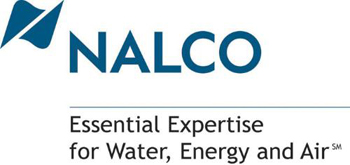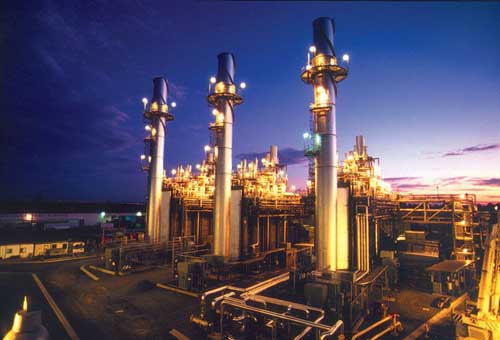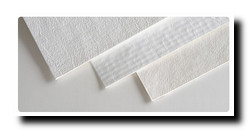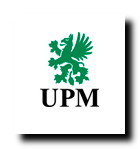Ianadmin
Sonoco Announces Price Increase for All Paperboard Tubes and Cores

"This price increase is necessary to recover recently announced paperboard price increases and other inflationary inputs impacting our converting cost," said James Harrell, vice president, Tubes and Cores-North America.
Sonoco is the largest producer of paper-based tubes and cores in North America which are used to serve the paper, textiles, plastic films and tape and specialty industries. For more information about Sonoco's complete line of paperboard tubes and cores or to learn more about current pricing, please visit the Company's website or contact the Company at +800-377-2692.
SOURCE Sonoco
Corporate Leaders Expand Use of FutureMark Recycled Paper in 2012
 FutureMark®Paper Group, North America’s leading provider of responsibly made, high-recycled paper, grew its customer base for a third straight year in 2012 with the addition of respected organizations such as the American Museum of Natural History, Black & Decker, Kaplan, Kohl’s, Sam’s Club, Time Inc., Trader Joe’s and Wiley. FutureMark also significantly expanded relationships with existing customers Chick-fil-A, National Geographic and Whole Foods Market.
FutureMark®Paper Group, North America’s leading provider of responsibly made, high-recycled paper, grew its customer base for a third straight year in 2012 with the addition of respected organizations such as the American Museum of Natural History, Black & Decker, Kaplan, Kohl’s, Sam’s Club, Time Inc., Trader Joe’s and Wiley. FutureMark also significantly expanded relationships with existing customers Chick-fil-A, National Geographic and Whole Foods Market.
“FutureMark Paper Group continues to expand and grow, despite tough conditions overall in the North American market for printing paper,” said FutureMark President and CEO Steve Silver. “Our commitment to minimizing the environmental impact of paper production is really paying off. Customers value our products’ high recycled content and environmental profile. They especially seem to like that our recycled paper performs and costs the same as less green, non-recycled alternatives.”
Recycled paper helps conserve natural resources. According to the Environmental Paper Network’s Paper Calculator, by using FutureMark recycled paper in lieu of non-recycled paper, FutureMark customers collectively generate these environmental savings each year:
- Displaced the need to cut down more than 4 million trees
- Saved enough energy to power more than 30,000 American homes for one year
- Uses about 2 trillion fewer gallons of water
- Reduces greenhouse gas emissions roughly equivalent to taking nearly 60,000 cars off the road
FutureMark Paper Group’s responsibly made printing and packaging papers have the highest recycled content for products of their type made in North America. The group’s two manufacturing facilities produce 90- to 100-percent recycled papers used in books, catalogs, magazines, retail inserts, office papers, labels and promotional mailings, as well as in fast food and commercial packaging applications.
Nalco Named Preferred Paper Industry Supplier for Third Consecutive Year
 For the third consecutive year, Nalco, an Ecolab company, was selected as a preferred supplier for the paper industry by readers of Pulp & Paper International (PPI) magazine, a leading industry trade publication.
For the third consecutive year, Nalco, an Ecolab company, was selected as a preferred supplier for the paper industry by readers of Pulp & Paper International (PPI) magazine, a leading industry trade publication.
Pulp, paper and paperboard manufacturers around the world named Nalco as the supplier they most anticipated buying from in the next 12 months across four categories of chemical programs in PPI's 2012 Brand Awareness and Preference Study. Respondents also preferred Nalco to treat mill boiler, steam and cooling systems, and named the company the most preferred supplier of biocides and retention and drainage aids used in the wet-end of the papermaking process.
"This recognition reinforces the value Nalco's innovative technologies and services bring to the paper industry and serves as a great testament to the commitment and leadership of the Nalco brand in the global market," said Tim Mulhere, Ecolab executive vice president and president, Global WPS.
The Brand Awareness and Preference Study is an annual survey conducted by PPI publisher RISI. RISI is an information provider for the global forest products industry, including the pulp and paper, wood products, timber, biomass, tissue, nonwovens, printing and publishing industries.
Marubeni Power Development Australia trusts Metso's professional service capabilities in choosing a supplier for an automation system upgrade
Marubeni Power Development Australia Pty Ltd. has chosen Metso to upgrade the automation system at its Smithfield Energy Facility in Smithfield, New South Wales, Australia. The company chose Metso to supply the upgrade thanks to Metso's professional and reliable service capabilities, long cooperation as well as existing system compatibility and upgradability. For example, the existing I/O modules can be fully reused.

Operated by Marubeni Australia Power Services Ltd, the 162 MW Smithfield cogeneration plant produces electricity for the national grid and process steam for an adjacent cardboard recycling plant. The plant is fueled by natural gas.
Metso supplied the plant's existing control system in 1996-97. It has now come to the end of its life cycle and needs to be upgraded. The refurbished control system will be commissioned in June-August 2013.
Marubeni Australia Power Services Ltd. is a subsidiary of Marubeni, which is involved in the handling of products and provision of services in a broad range of sectors. These areas encompass importing and exporting, as well as transactions in the Japanese market, related to food materials, food products, textiles, materials, pulp and paper, chemicals, energy, metals and mineral resources, transportation machinery, and offshore trading. The company's activities also extend to power projects and infrastructure, plants and industrial machinery, finance, logistics and information industry, and real estate development and construction. www.marubeni.com
Increased reliance on domestic Eucalyptus fiber by Spanish pulp mills
Increased reliance on domestic Eucalyptus fiber by Spanish pulp mills has resulted in a dramatic reduction in wood chip shipments from Uruguay, reports the Wood Resource Quarterly
European pulpmills imported much less Eucalyptus chips from Latin America during
2012, mainly because Spanish pulp mills reduced their reliance on relatively costly wood
fiber from Uruguay dramatically, reports the Wood Resource Quarterly. Pulp mills in Spain have also paid less for domestic pulplogs the past year, resulting in substantially lower wood fiber costs in 2012 than the previous year.
 Seattle, USA. The pulp industry in Spain has turned its focus to increasingly rely on domestic wood fiber sources rather than imported wood fiber the past year. Importation of wood chips importation was down as much as 58 percent the first ten months of 2012 as compared to the same period in 2011, and there has not been a single chip vessel that has entered a Spanish port since May of 2012, as reported in the Wood Resource Quarterly (www.woodprices.com). This is a remarkable turn-around in wood fiber sourcing. As late as 2011, Spain imported 675,000 tons of Eucalyptus chips, 87 percent from Uruguay and the rest from Congo and Chile.
Seattle, USA. The pulp industry in Spain has turned its focus to increasingly rely on domestic wood fiber sources rather than imported wood fiber the past year. Importation of wood chips importation was down as much as 58 percent the first ten months of 2012 as compared to the same period in 2011, and there has not been a single chip vessel that has entered a Spanish port since May of 2012, as reported in the Wood Resource Quarterly (www.woodprices.com). This is a remarkable turn-around in wood fiber sourcing. As late as 2011, Spain imported 675,000 tons of Eucalyptus chips, 87 percent from Uruguay and the rest from Congo and Chile.
Over the past eight years, Uruguay has exported between 300,000 oven-dry metric tons (odmt) and 600,000 odmt annually to Spain, so losing all that volume is a major setback for landowners and chip exporters in the country. Total chips exports to Spain for 2012 will be an estimated 200,000 odmt, which represents less than half of the shipments in
2011, and is the lowest levels seen since 2004. Even the other two major buyers of Eucalyptus chips, Portugal and Norway, have cut back purchases substantially the past 12 months with the result that total volumes of chips exported from Uruguay in 2012 may reach a total of only 700,000 odmt, down from almost 1.6 million odmt in 2011.
Eucalyptus log prices in Spain have been declining steadily for more than a year, and the major fiber consumers have lowered the price they pay to land owners practically every quarter since early 2011. The average Eucalyptus log price in the 3Q/12 was 11 percent below the price in 3Q/11, according to the WRQ. In US dollar terms, the average cost for Eucalyptus has declined by 26 percent since its all-time-high in the 2Q/11. Spanish pulp mills currently have some of the lowest hardwood fiber costs in Europe, but are still paying more for hardwood fiber than competitors in Latin America and North America.
Wausau Board of Directors Responds to Starboard Letters
![]() Wausau Paper (NYSE:WPP) has announced that it was in receipt of the letter sent yesterday by Starboard Value LP (“Starboard”), as well as a letter sent on January 11, 2013, which indicated Starboard’s intent to nominate three candidates to the Company’s Board of Directors.
Wausau Paper (NYSE:WPP) has announced that it was in receipt of the letter sent yesterday by Starboard Value LP (“Starboard”), as well as a letter sent on January 11, 2013, which indicated Starboard’s intent to nominate three candidates to the Company’s Board of Directors.
The Company announced that its Board of Directors has sent a response to Starboard’s letters, the text of which follows:
January 15, 2013
Mr. Jeffrey C. Smith
Managing Member
Starboard Value LP
830 Third Avenue, 3rd Floor
New York, NY 10022
Dear Mr. Smith:
We were disturbed by your letter and public statements regarding the recent discussions with you about the strategy and governance of Wausau Paper. Your public description of the sequence of private events is inaccurate in many respects. In particular, our announcement on Friday regarding the exploration of alternatives for the Paper Segment and focus on Tissue Business was a unanimous Board decision that resulted from months of discussion and careful consideration by the Board of Directors with the assistance of independent financial advisors. Contrary to your accusation, this important strategic decision was not made in reaction to your letter of Friday morning.
The Wausau Paper Board of Directors is comprised of highly professional, experienced and ethical individuals who are committed to serving the best interests of all Wausau Papershareholders. We, including the two members nominated last year by Starboard, have been pursuing a wide range of actions to better position Wausau Paper for the future and to deliver the highest long-term value to our shareholders. These actions cannot be completed overnight, and, in fact, this Board began evaluating operational strategies to better position Wausau for the future long before Starboard became a shareholder of Wausau Paper. The steps taken, as set forth below, have positioned us to issue the most recent announcement regarding our intent to focus on our Tissue business:
- Added four new Board members since 2007
- Closed certain mills in the Northeast in 2009
- Closed Appleton converting facility in 2009
- Announced Tissue Expansion Plan in 2011
- Sold Timberland assets in 2011
- Appointed new Chairman in 2012
- Appointed new CEO and CFO during 2012
- Retained financial advisor in early 2012 to assist with the exploration of strategic alternatives for the Paper segment
- Sold premium Print and Color brands to Neenah Paper in 2012
- Closed Brokaw mill in 2012
Clearly, we are a Board committed to taking actions that benefit our shareholders. We have offered to sign a non-disclosure agreement with you in the past so that you could be better informed about our strategy and processes, but you have declined our offer. Yet, you continue to make assertions about the conduct and commitment of this Board, including members nominated by you, without any basis in fact.
Mr. Smith, for months you indicated your genuine interest in working together privately with us to reach an agreement. A few days ago you represented to our Chairman that we were “very close” to an agreement. These statements make your recent actions even more surprising. Understand that our focus is on serving the best interests of all Wausau Papershareholders and we will continue to take actions consistent with that focus. In that regard, we look forward to continuing our discussions with you and our other shareholders.
Sincerely,
Thomas J. Howatt, Chairman
Henry C. Newell, Chief Executive Officer
Michael C. Burandt
Londa J. Dewey
Gary W. Freels
Charles E. Hodges
G. Watts Humphrey, Jr.
Dennis J. Kuester
Source: Wausau Paper
Vaahto Group has made an Agreement to Sell Project Business to Bellmer GMBH
 Vaahto Paper Technology Ltd, a company within the Vaahto Group, has on 16 January 2013 entered into an initial agreement for the sale of the Vaahto Paper Technology group's Projects business and the spare part and small projects businesses belonging to its Services business to a company to be incorporated by Gebr. Bellmer GmbH Maschinenfabrik of Germany. The parties will seek to negotiate the final terms of the transaction so that it can be completed no later than on 27 March 2013.
Vaahto Paper Technology Ltd, a company within the Vaahto Group, has on 16 January 2013 entered into an initial agreement for the sale of the Vaahto Paper Technology group's Projects business and the spare part and small projects businesses belonging to its Services business to a company to be incorporated by Gebr. Bellmer GmbH Maschinenfabrik of Germany. The parties will seek to negotiate the final terms of the transaction so that it can be completed no later than on 27 March 2013.
Vaahto Group and Bellmer GmbH have in connection with negotiating the transaction also negotiated a co-operation agreement, to be entered into by the Projects business and Vaahto Paper Technology's Service business. The Vaahto Service business unit produces technological solutions for maintenance services in the paper, board and pulp industries.
The Projects business has accumulated annual revenues of EUR 17–25 million during the last years, with low profitability. The business unit employs approximately 60 persons in Hollola and 15 persons in Tampere, respectively. The transaction would be realised with a view of seeking to improve the cash flow of the Vaahto Group for the financial year 2013 as well as to implement the strategy outlined by the Board of Directors.
Gebr. Bellmer GmbH Maschinenfabrik is a German family-owned company that produces equipment and services for the paper, board and pulp industries. With this transaction Bellmer continues to strengthen their market presence as well as their product portfolio. Vaahto’s paper machinery business is concentrated on Finland, Sweden, Russia and China. By establishing a strong presence in Finland and Sweden and increasing resources in Russia and China Bellmer forms a good platform for further growth.
UPM Plans to Reduce 580,000 Tonnes of Graphic Paper Capacity in Europe
 The continuing challenges in European economy have significantly impacted the consumption of paper, exacerbating the effect of structural changes in paper end-uses and resulting in further decline in the demand of graphic papers in Europe. High costs and significant overcapacity continue to challenge the industry operators in Europe.
The continuing challenges in European economy have significantly impacted the consumption of paper, exacerbating the effect of structural changes in paper end-uses and resulting in further decline in the demand of graphic papers in Europe. High costs and significant overcapacity continue to challenge the industry operators in Europe.
UPM is planning to permanently reduce paper capacity in Europe by a further 580,000 tonnes. The capacity reductions are planned to take place in Finland, Germany and France. The business environment also makes evident the need for streamlining of the Paper Business Group and UPM’s global functions to remain cost competitive in the new business scale.
In early January, UPM finalized the employee consultation process in UPM Stracel, France, implying reduction of 270,000 tonnes of coated magazine paper capacity. With UPM Stracel and today’s plans, UPM would reduce a total of approximately 850,000 tonnes of graphic paper capacity in 2013.
UPM plans:
- - a permanent closure of paper machine 3 at UPM Rauma mill in Finland,
- - a permanent closure of paper machine 4 at UPM Ettringen in Germany,
- - a sale or other exit of UPM Docelles mill in France, and
- - subject to further analysis, streamlining in the Paper Business and UPM’s global functions.
If all plans will be implemented, UPM’s personnel would be reduced by approximately 860 persons. The plans would affect several countries.
According to the plan the Rauma and Ettringen machine lines would be permanently closed by the end of first half of 2013. Both machines are producing uncoated magazine paper, in total 420,000 tonnes annually.
The employee information and consultation processes will start in line with the local legislation. In case of Ettringen and Rauma the process will start immediately.
The process for selling the UPM Docelles mill will start immediately. The process will be given maximum six months. Docelles is producing uncoated woodfree papers, 160,000 tonnes annually.
As for Paper Business Group and global functions streamlining, the process will start after further analysis as of the beginning of February 2013.
Including UPM Stracel, the plans are estimated to result in annual fixed cost savings of EUR 90 million, and one-time cash costs of EUR 100 million.
“The target of the planned actions is to ensure the efficient use of UPM’s remaining capacity. The paper machines targeted for closure are either at the end of their technical age, have limited product flexibility or poor profitability. The situation is very regrettable for the personnel, however, in the overcapacity situation, we need to adjust our capacity to the level of profitable customer demand,” says Jyrki Ovaska, President of the UPM Paper Business Group.
“Healthy cash flow is critical for UPM and its employees. Therefore UPM must take action to secure it. Under these circumstances only the most efficient and the most flexible production lines and organizations are competitive,” says Ovaska.
Södra leaves Russian pulp mill project

Södra decided to leave the project with Angara Paper company to build a Eniseyskiy LKhK pulpmill in Russia. Swedish company was invited to take part in construction of a greenfield mill in southern Siberia.
Södra’s role in the project was to be an industrial partner and to handle the marketing and sales of pulp from the planned mill.
“The scope of the project has changed from the original plan. From our perspective, the project no longer fits in with our future strategy and we have therefore chosen not to continue with our involvement”, said Gunilla Saltin, Acting CEO and President of Södra Cell.
The project of Eniseyskiy pulpmill has long and difficult history. At the APEC summit in Vladivostok Japanese company Marubeni finally concluded a contract with Angara Paper to finance construction of the mill and purchase of equipment. Marubeni is also going to build a port on Yenissey river for the mill. Angara Paper’s project will be financed at minimal interest rate by the Japanese bank for international cooperation.
Total investment scope of the project is $3.2 billion. It is planned to establish annual production of 900,000 tons of softwood bleached pulp, 300,000 tons of dissolving pulp as well as 380,000 cu m of lumber and 100,000 tons of pellets. The project will create 4,500 jobs, including 3,500 in logging.
Södra Cell is world’s third largest producer of market pulp with annual volume of two million tons.
BASF and Zelfo Technology collaborate on micro-fibrillated cellulose (MFC)
 BASF and Zelfo Technology have signed an agreement for the transfer of IP rights of the latest Zelfo processing technology for the efficient and cost-effective production of micro-fibrillated cellulose. The newly developed technology concerns the engineering of superior micro-fibrillated cellulose which is used to produce a wide variety of paper, board and tissue products. This technology allows significant improvement in strength and weight reduction to address for example, the need for lighter, stronger paper-based packaging. Financial details of the cooperation were not announced.
BASF and Zelfo Technology have signed an agreement for the transfer of IP rights of the latest Zelfo processing technology for the efficient and cost-effective production of micro-fibrillated cellulose. The newly developed technology concerns the engineering of superior micro-fibrillated cellulose which is used to produce a wide variety of paper, board and tissue products. This technology allows significant improvement in strength and weight reduction to address for example, the need for lighter, stronger paper-based packaging. Financial details of the cooperation were not announced.
BASF aims to further improve Zelfo’s fibre technology through a wide range of chemical additives for paper making. BASF’s expertise in chemistry is essential for MFC technology to function efficiently on an industrial scale and to support the use of cellulosic, recyclable and biodegradable materials in the process.
“The cooperation combines BASF’s chemistry with Zelfo Technology’s know-how and patented process for optimized cellulosic raw materials,” said Uwe Liebelt, President of BASF’s Paper Chemicals division. “Together we are uniquely positioned to address the needs of the packaging industry for increased recyclability coupled with superior performance.”
Each partner has defined exclusive industry fields to apply this technology. BASF will focus on all applications related to paper, board, packaging and tissue. Zelfo Technology will continue its main activities in non VOC emitting binders and bio-composite based applications. Both companies will collaborate to scale-up the technology and will continue to work closely together. Zelfo Technology has a unique position in modern cellulose material science and has won several awards for its technical achievements in producing special cellulose composite based products.
“BASF is leading in chemistry and Zelfo Technology is a pioneer in cellulosic material science. Our recently concluded agreements with BASF will accelerate the full industrial scale-up of the process for the benefit of both companies,” said Richard Hurding, CEO of Zelfo Technology. “By offering enhanced cellulosic materials such as MFC, not only wood pulp but also recycled pulp and agricultural cellulose waste can all be upgraded to produce superior pulp additive grades for better products and more sustainable packaging.”
